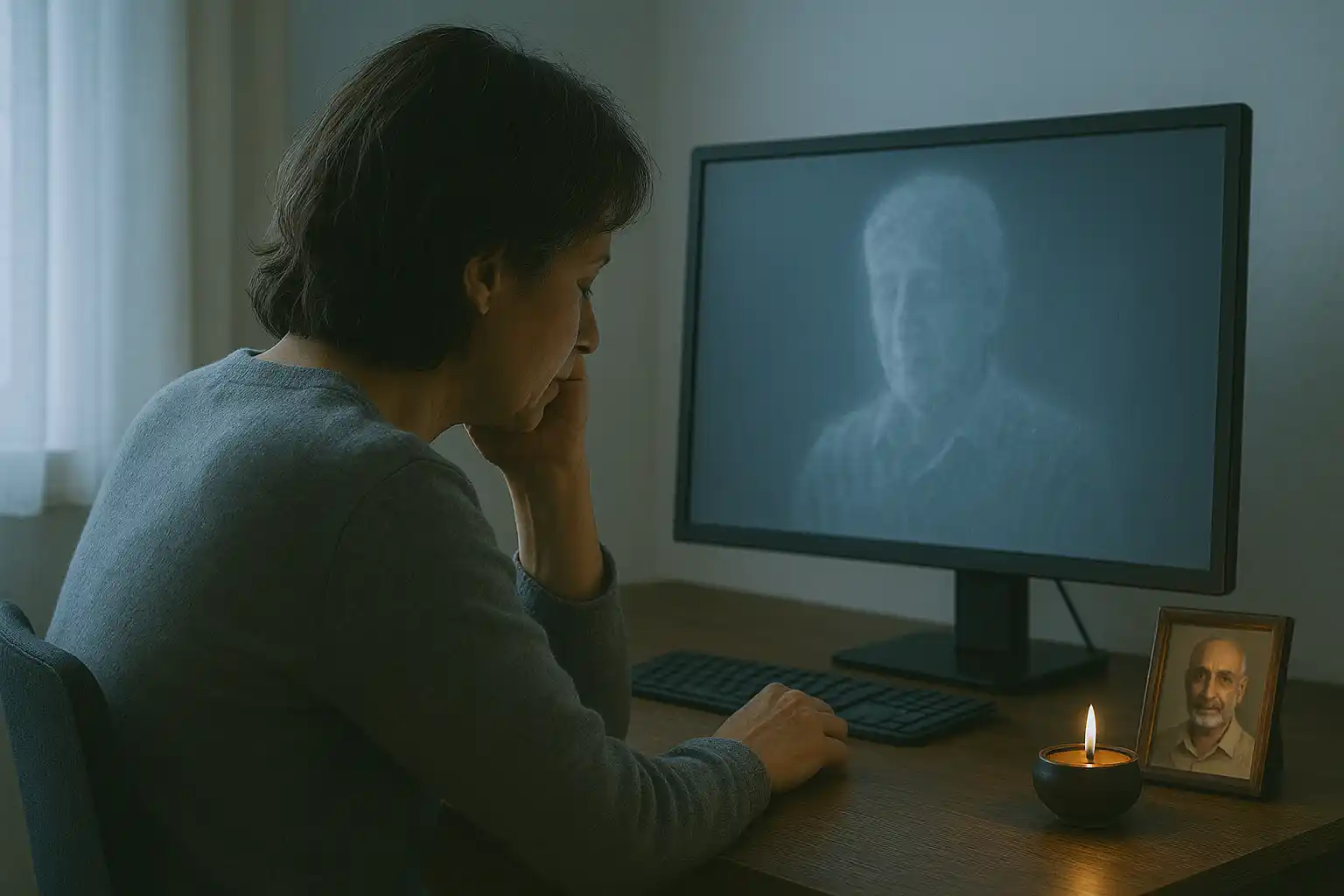Estate Planning in the Digital Age: Why Waiting Is the Worst Strategy
We live in an era where managing our digital identities and assets has become just as important as the traditional estate planning many of us avoid. Yet despite this reality, far too many people still postpone making end-of-life arrangements, hoping they’ll have time to “get to it someday.” But here's the uncomfortable truth: when it comes to estate planning, "someday" often becomes "too late."

About This Blog
We live in an era where managing our digital identities and assets has become just as important as the traditional estate planning many of us avoid. Yet despite this reality, far too many people still postpone making end-of-life arrangements, hoping they’ll have time to “get to it someday.” But here's the uncomfortable truth: when it comes to estate planning, "someday" often becomes "too late."
The Psychology of Delay
The first—and perhaps biggest—obstacle is psychological. Nobody wants to think about death, let alone prepare for it. It’s not just about the fear of dying; it’s also about the complex emotions tied to legacy, family dynamics, and control. Most people believe they have more time than they actually do, or they assume that estate planning is something to tackle in old age.
Unfortunately, this leads to countless missed opportunities for proactive planning. A sudden accident, an unexpected illness, or even a minor cognitive decline can shift someone from "totally fine" to legally incapacitated, leaving families scrambling without the proper tools or authority to make decisions. The common phrase “I’ll do it when I get older” is a moving target—and a dangerous one at that.
Why Education Beats Reaction
Education is the antidote to procrastination. As estate planning attorney Michelangelo Mortellaro emphasized, the most powerful thing you can do is understand your options before you're forced into choosing between them. Instead of reacting during a crisis, proactive families are asking the right questions early: What happens if I’m incapacitated? Who will take care of my children? What if my heirs are in debt, divorcing, or struggling with addiction?
Being informed allows you to choose strategies that offer flexibility, control, and protection. It also empowers family members to have necessary (albeit difficult) conversations while everyone is still healthy and capable. Whether it’s updating a will, setting up a trust, or understanding how a Lady Bird deed works—these are topics that deserve attention before they become urgent.
Digital Sharing for a Digital Age
The rise of social media platforms like TikTok has made estate planning more accessible than ever. Mortellaro’s own journey into educational content on TikTok turned into a revelation—not only for him, but for the hundreds of thousands who began to realize what they didn’t know. A quick video on Medicaid qualifications or the cost of probate can spark meaningful conversations across generations.
With digital platforms, it’s never been easier to share estate planning insights across families, especially those separated by geography. One sibling can send a helpful clip to the rest of the family with a simple “Hey, have you seen this?” It’s a way to initiate the planning process without the pressure of sitting in a lawyer’s office. That initial exposure is often the spark that leads to action.
The Power (and Limits) of Beneficiaries
A common belief is that simply naming beneficiaries on accounts is enough. And while designating someone on a bank account or life insurance policy can help avoid probate, it doesn’t offer nearly the same protection as a well-structured trust. What if a beneficiary dies before you? What if they’re going through a divorce, lawsuit, or receiving disability benefits that your gift could compromise?
In short, naming beneficiaries is a good start—but it’s not the finish line. Trusts, especially those that anticipate changes in health or family status, offer far more resilience. A well-drafted trust can adapt to life’s curveballs—whether it’s a child struggling with addiction or a grandchild born with special needs.
Lady Bird Deeds: A Tool Worth Knowing
One of the lesser-known estate planning tools that’s gaining popularity is the Lady Bird deed, also known as an enhanced life estate deed. While not available in all states, this option allows homeowners to retain control of their property during their lifetime while designating who inherits it after their death—without going through probate.
Unlike a traditional life estate deed, which permanently gives away future ownership, a Lady Bird deed lets you change your mind. You can revoke it or alter beneficiaries without needing anyone’s permission. It’s an elegant solution for simple estates, especially when paired with other tools like power of attorney and advance healthcare directives.
However, for families with more complex needs, a trust may still be the better route. Trusts allow for distribution customization, better protection from creditors, and more sophisticated planning around taxes, disability, and blended families.
Avoiding Probate: Worth Every Penny
Probate is a court-supervised process that transfers assets to heirs after death—but it’s often long, expensive, and public. In some states, it can take a year or more and consume up to 10% of an estate’s value in fees. Even small estates can suffer disproportionately.
Avoiding probate isn’t just about convenience. It’s about protecting your loved ones from bureaucratic stress during a time of grief. Whether it’s through a trust, a Lady Bird deed, or carefully managed beneficiary designations, the goal is to transfer your legacy with minimal friction.
Estate Planning Is a Living Process
Another common misconception is that estate planning is a one-time task. It’s not. Your plan should evolve as your life does. Marriages, divorces, births, deaths, new assets—these all change your estate landscape. A will written 15 years ago that names your ex-spouse or doesn’t account for your newest grandchild could cause chaos later.
That’s why it’s wise to revisit your estate plan regularly, preferably every couple of years or when a major life change occurs. Many attorneys now offer annual maintenance programs to help keep documents aligned with changing laws and personal circumstances.
Three Steps to Get Started Today
If all of this feels overwhelming, take heart. Estate planning doesn’t have to be done all at once. Here are three steps you can take today:
Start with Education: Watch a video, read a blog (hey, you’re doing that already), or book a consultation with a reputable estate attorney. Many offer free or low-cost initial meetings.
Get Your Core Documents in Place: These include a power of attorney, a healthcare surrogate, and a living will. These simple forms can give you and your loved ones immediate protection.
Review Your Assets and Beneficiaries: Make a list of your bank accounts, retirement funds, and insurance policies. Confirm who the current beneficiaries are and assess whether they still align with your intentions.
Closing Thoughts: Your Legacy, Your Terms
End-of-life planning isn’t about doom and gloom—it’s about empowerment. It’s your chance to shape how your legacy is passed on and ensure that your values, not just your valuables, endure.
Whether you have modest savings or a multi-million-dollar estate, the key is to plan with intention and clarity. There’s no substitute for professional guidance, but there’s also no reason to delay the conversation any longer.
Ready to dig deeper? Watch the full conversation with Michelangelo Mortellaro, Esq on the Death and Dying in the Digital Age podcast, now available on YouTube. You’ll walk away with practical tools, heartfelt insights, and maybe even a few laughs. Don't miss it!
If something happened to you, would the people in your life know what to do? Don't leave your loved ones in the dark. Start developing your end-of-life and digital legacy plan. Download the My Final Playbook App on the App Store or Google Play or visit us online at Final-Playbook.Passion.io to get started. With My Final Playbook, you'll be able to start and learn how to organize your legal, financial, physical, and digital assets today. Until then, keep your password safe and your playbook up to date.
EndFragment
Related Blog
Duis mi velit, auctor vitae leo a, luctus congue dolor. Nullam at velit quis tortor malesuada ultrices vitae vitae lacus. Curabitur tortor purus, tempor in dignissim eget, convallis in lorem.





Comments